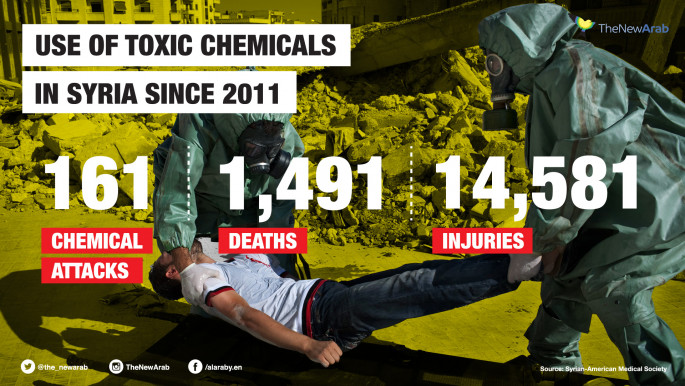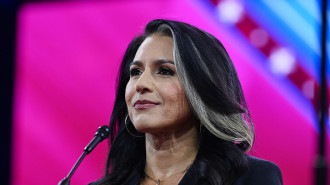US imposes sanctions on Syrian officials over chemical weapons
The decision followed an international investigation that found Syria to be behind chlorine gas attacks on civilians.
"We condemn in the strongest possible terms the Syrian regime's use of chemical weapons," White House National Security Council spokesman Ned Price said in a statement.
"The Assad regime's barbaric continued attacks demonstrate its willingness to defy basic standards of human decency, its international obligations, and longstanding global norms."
The decision marks the United States' first use of sanctions against Syrian military officials for the use of chemical weapons, a Treasury Department statement said.
An investigation conducted by the United Nations and the Organization for the Prohibition of Chemical Weapons [OPCW] concluded that Syria's government had used chlorine in at least three attacks.
It also found that the Islamic State group had used mustard gas in the Syrian conflict.
Under the Chemical Weapons Convention, to which Syria is a signatory, Chlorine's use as a weapon is banned.
When inhaled, the chemical gas turns into corrosive hydrochloric acid and can burn the lungs. This can be fatal when the lungs are burned and the victims consequently drown in bodily fluids that are released.
The joint UN and OPCW inquiry led France to circulate a draft resolution to the UN's security council, which proposes a ban on the sale or supply of helicopters to Syria.
It also blacklists 11 Syrian military commanders and officials linked to chemical weapons attacks during Syria's war.
A date has yet to be set for a vote on the draft resolution, however it is expected that Russia - the Assad regime's strongest ally - may use its veto power to block the measures.
Ten of those listed on the US' sanctions list announced Thursday are also included on the draft resolution, which proposes that they be subjected to asset freezes and global travel bans.
During the course of Syria's six-year war, the Assad regime has repeatedly denied the use of chemical weapons. It has blamed Islamist rebel groups for perpetrating chemical attacks.
In 2013, Syria agreed to destroy its chemical weapons stockpiles in a deal brokered by the US and Russia.
The deal was backed by the Security Council with a resolution that threatened sanctions and other measures in the event of "unauthorised transfer of chemical weapons, or any use of chemical weapons by anyone" in Syria.







 Follow the Middle East's top stories in English at The New Arab on Google News
Follow the Middle East's top stories in English at The New Arab on Google News
![Israel demolished homes in the Silwan area [Getty]](/sites/default/files/styles/image_330x185/public/2024-11/GettyImages-2183868368.jpg?h=199d8c1f&itok=TweR8vd0)

